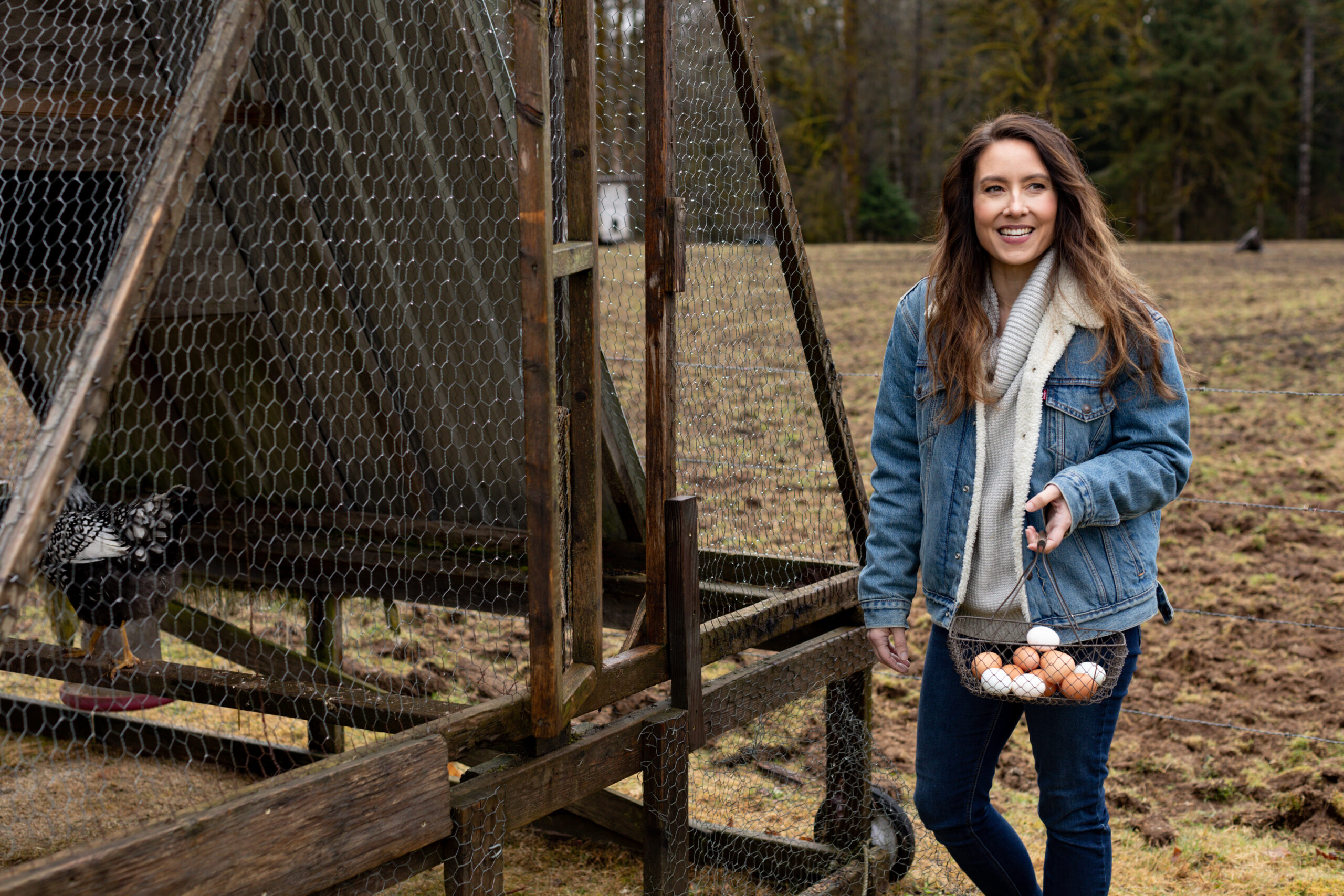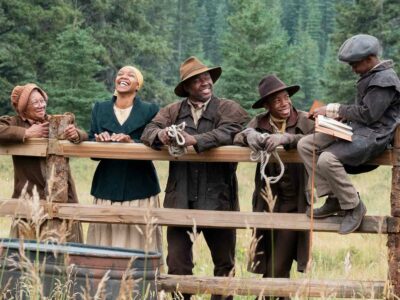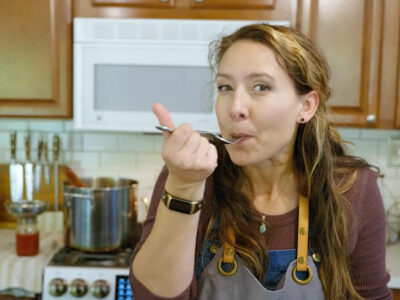Learning how to be self-sufficient takes some dedication and sweat equity. I'm happy to be sharing these homesteading tips for those who are in it for the long haul. I'm also sharing a plan for going from homestead dreams (or just beginning), to living out your homestead life in less than five years.
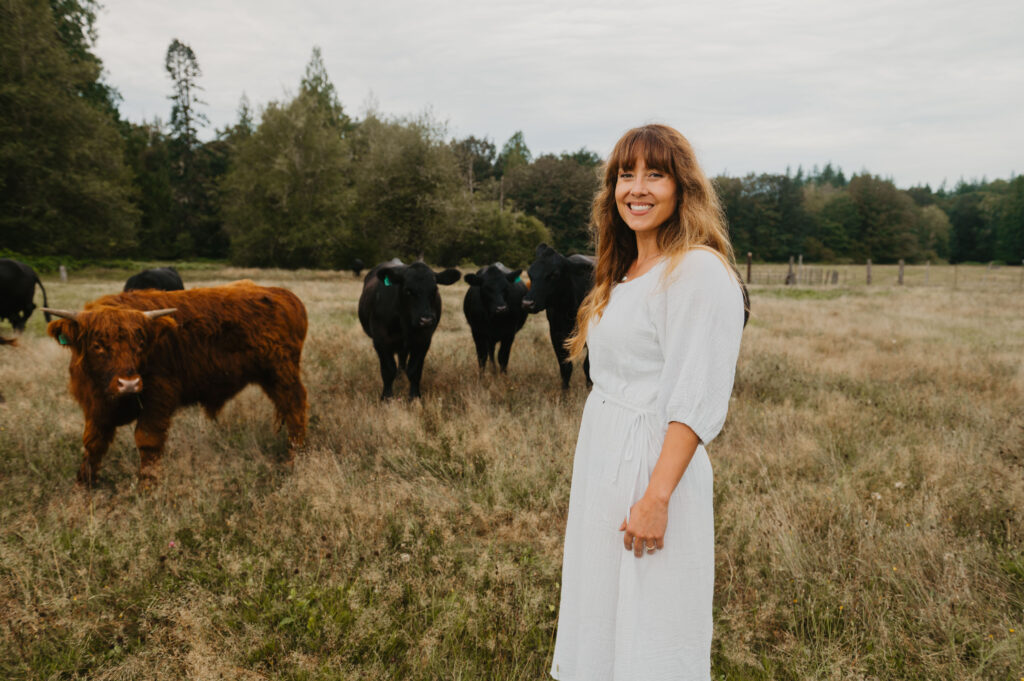
This post was originally published with my podcast interview with Anna from The House and Homestead (Episode #206 – Self-Sufficient Homesteading Tips for the Long Haul). It has since been updated to include my podcasts on self-sufficiency tips from the Pioneers, the Amish and the Great Depression… all of which I felt accompanied this topic well.
You can check out all the information in one place, and listen to the podcast episodes to hear all the tips.
The last Anna was on the podcast, in episode 131, we talked about transitioning from city life to a homesteader. She and her family have continued their journey towards self-sustainability and fostering relationships in their community.
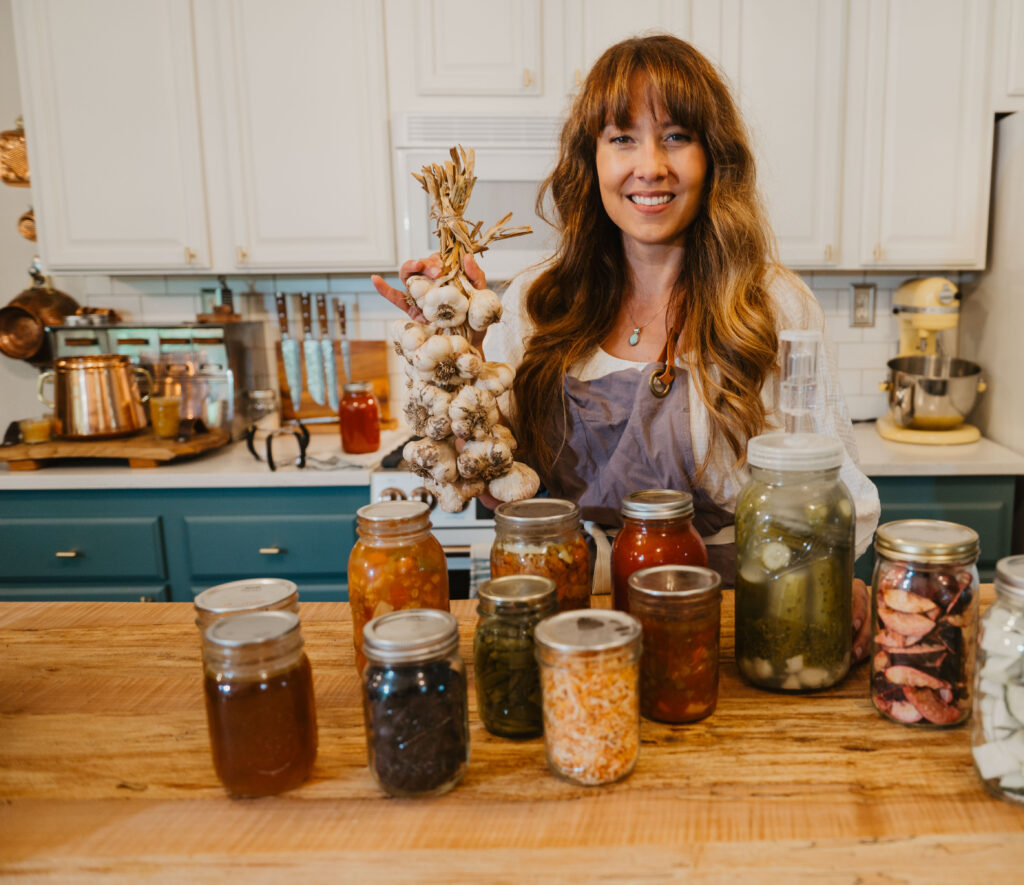
How to Be Self-Sufficient
There are many tips for becoming self-sufficient, so let's give a quick overview of what Anna feels are some of the most important:
- Start Where You Are – There's always pressure to hurry things along or get to the “end goal” quickly. What we've seen over the past four years (since the Pandemic) are so many families who uprooted their homes to start a homestead out of fear, rather than motivation. Homestead burnout is a real thing and it can happen without us even realizing it. Keeping up the fast-paced schedule when you first move to your homestead isn't sustainable for years on end. Start where you are and take things slow. You'll learn so much by just being on your homestead and you may just find your plans change as you get to know your home/needs.
- Be Resilient & Resourceful – There's always more to do on a homestead. We've lived here going on twenty years now, and each and every year, there are projects to be done and improvements made. Homesteaders never run out of projects! Learning how to be resourceful comes in very handy (because projects usually equate to money – so the more we can be resourceful, the more projects we can typically get done while on a budget). Resiliency is also key. Things will go wrong on your homestead. Your plans won't pan out like you thought, something will break, etc. Learning how to be resilient, learn from these experiences and, essentially, roll with the punches will get you a long way.
- Keep an Open Mind – An open mind will also take you a long way. Learning how to see things for what they could be and not what they are will help keep the dream alive. But also being mindful that we can't do it all at once and that building a homestead takes time, we'll be much better off.
- Earn Income from Your Homestead – Figuring out a way that your homestead can earn you an income is a great way to help it pay for itself. For example, if you're raising backyard chickens, could you raise a few more and sell the eggs to help offset the cost of the feed? Or, if you have a milk cow, could you sell some of the milk or turn the milk into dairy products like homemade yogurt, sour cream or ice cream? Are you an avid baker? Perhaps you could sell homemade bread, milk and eggs in a little farm store. We purchased a small shed and turned that into a farmstand when we had our dairy cow. It was a great way for people to come and go as they needed and for us to earn a little side income to offset our costs.
- Find Local Community Resources – Chances are, in your area, there's a place where people go to share information. Maybe a Facebook group or a local shop where you can connect with others. These are often great places to get connected. Remember, no man is an island and we're much stronger as a community.
- Pace Yourself – It's easy to get bit by the dream and want to do everything all at once. Again, this is how homestead burnout happens. It's fine to jump in with both feet, many of us did, but also knowing when to pull back and pace yourself is key to avoiding burnout. If you want to learn more skills (even if you're not living on a homestead yet), joining the Pioneering Today Academy is a great way to start building your skillsets one at a time so you're ready for more when/if the homestead dream becomes a reality. Pro Tip: There's so much you can do on a small 1/2 acre, so don't let the “someday” dream keep you from the reality of today.
- Prioritize – Prioritization is key. Again, we'll want to do everything all at once, it's just our nature. But writing out your goals on paper can help prioritize what's truly important now. If you have chickens or backyard pigs, it's probably more important to prioritize a coop and an enclosure for them rather than putting in a medicinal herb garden. Sure, both are important, but one trumps the other in priority. See what I mean here?
- Give Yourself Grace – It's so important to give yourself grace in this process. There are going to be days where you knock it out of the park, so to speak. Then, there will be days where you don't feel like you accomplish anything (or maybe you take a few steps backward). This is normal and is bound to happen. Give yourself grace!
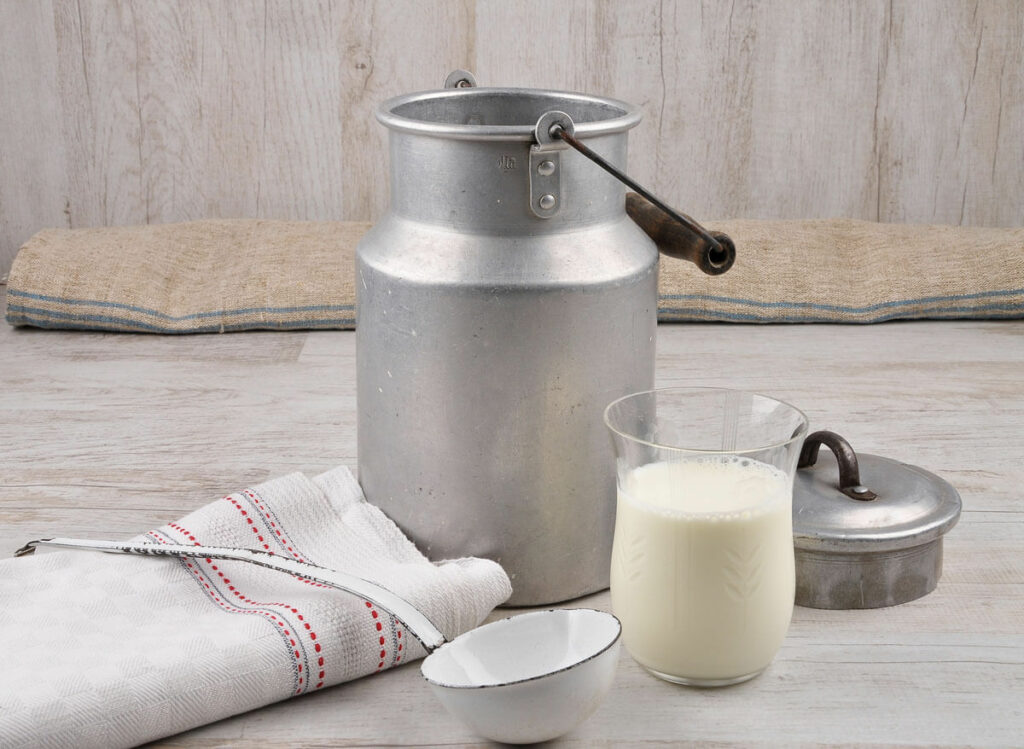
Self-Sufficiency Tips from the Pioneers & Amish
- Speed & Efficiency is Key – Choose the quickest and most versatile form of preservation or use of the food. Example: I dehydrate all of my herbs. Once the herb or spice is dehydrated I can create everything else from it. The most versatile and quickest form of preservation with my winter squash is in its whole form. I can then roast it, cook it up for puree and pies, bake it whole, dehydrate it later or can it later. Catch our full podcast episode filled with tips for storing vegetables without a root cellar for long-term storage.
- Stop Running to the Store – Learn how to create many of your own products from what you preserve or harvest. Learn about these ingredient substitutions that can be used in the kitchen. Make your own DIY products (check out my book HandMade which is filled with tutorials for countless DIY projects.)
- Stock Your Medicine Cabinet – The pioneers of old didn't run to the store to stock the medicine cabinet. They used their herbs for cooking and for medicinal purposes. The homes of old used their own herbs and spice cabinets to create natural herbal remedies. They made their own medicinal teas, tinctures, herbal infused oils for salves, antibiotic ointments, soaps and balms, and poultices just to name a few.
- Use the Seasons to Your Advantage – The majority of butchering or harvesting meat happens in the fall when the weather turns cooler. There are several reasons for this including:
- The colder temperatures to preserve the meat – without electricity, salt curing or the use of ice/cold houses.
- Harvesting while the animal is still on the gain. Typically, your livestock eats well throughout the summer months and weighs the most going into fall, which means a larger harvest for you.
- Not feeding during the winter months. Feeding throughout the winter months isn't cost-effective. When you're providing the feed yourself, you want to make sure you won't run short.
- Turning fat into light sources, soaps and more.
- Using the Whole Animal – The fall butcher time happened just in time to use the fat to make your candles for the rest of the year. With the shorter days, having light was important. Beef fat (called tallow) is generally used for soap and candle making. Pork fat (called lard) is used for cooking and baking, as well as soap and candle making, but the leaf lard (the purest) is more desired for cooking than tallow. You can learn how to render lard here.
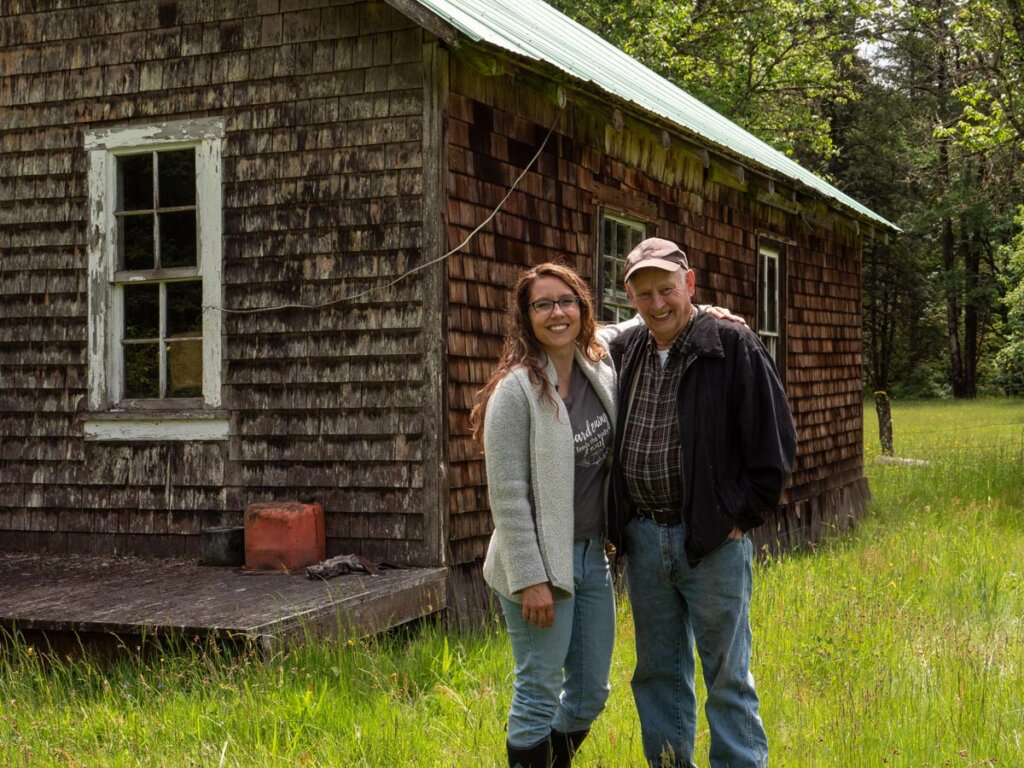
Self-Sufficiency Tips from the Great Depression Era
This podcast episode (and video) is near and dear to my heart. As my dad is aging, his memory isn't what it used to be. I'm so thankful for this interview I did with him, where he shared what it was like growing up during the Great Depression.
He answered many questions about what life was like. I hope you enjoy his words of wisdom as much as I do.
In the podcast and video, I also mention how my grandma used to use cornmeal in much of her baking, and she would only use white cornmeal, not yellow! So, I created a special download for you of my Grandma's cornbread and biscuit recipes. You'll notice her cornbread recipe doesn't use eggs, making it even more frugal and allergy-friendly.
Resources
Here are all the resources mentioned in the podcast episodes above:
- FREE House and Homestead Modern Homesteading Magazine
- Bulk Canning Lids
- Amish Push-Pull Hoe
- Vermont Bun Baker – hybrid wood cookstove
- Grandma's Cornbread and Biscuit Recipes
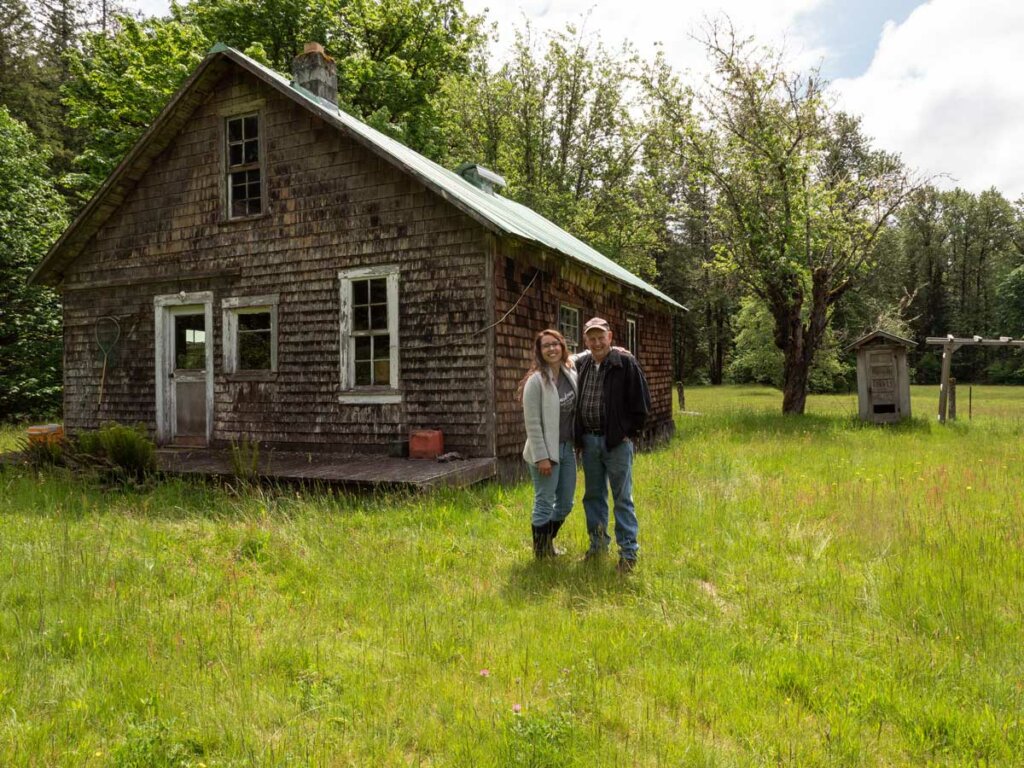
G
More Homesteading Articles
- How to Buy a Homestead – What to Look For
- What to do When Homesteading Gets Tough
- What To Do FIRST On Your Homestead (Or What To Do NEXT)
- How to Earning a Living from Your Homestead
- What To Do When Your Family Isn’t Onboard with Homesteading (Or Something You’re Passionate About)
- Homesteading + Making Money (How to do it All)
- How to Get Everything Done in a Day Without Wasting Time or Getting Distracted
- Avoid Overwhelm – Choosing What’s Right for Your Homestead
- Community Sufficiency vs. Self-Sufficiency
